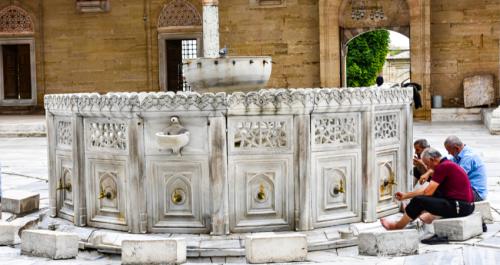How To Perform Ghusl for Male: A Detailed Guide

Ghusl, or full-body purification, is a religious obligation in Islam that must be performed after sexual intercourse, menstruation, and childbirth. It is an important aspect of Islamic practice that serves to cleanse the body, purify the soul, and prepare oneself for worship and prayer. In this article, we will provide a detailed guide to the steps involved in how to perform ghusl for male.
How to do Ghusl quickly for male in detail
Step 1: Making the Intention
The first step of how to do ghusl without showering is making the intention to do so. This involves making a conscious decision to purify oneself in preparation for worship and prayer. According to Islamic scholars, it is recommended to recite the following intention in one's mind or heart: "I intend to perform ghusl to become pure and clean, in obedience to Allah."
Step 2: Washing the Hands
After making the intention, the next step is to wash the hands three times. This is done to remove any impurities that may be present on the hands, as well as to symbolize the purification of the body.
Step 3: Rinsing the Mouth and Cleaning the Nose
The next step is to rinse the mouth three times. This is done to remove any impurities or residue from the mouth. After rinsing the mouth, the person must then clean their nose three times. This is done to remove any impurities or residue from the nostrils.
Step 4: Washing the Face
The next step is to wash the face three times. This is done to remove any impurities or residue from the face, as well as to symbolize the purification of the soul.
Step 5: Washing the Arms and Head
After washing the face, the person must then wash their arms up to the elbows three times. This is done to remove any impurities or residue from the arms, as well as to symbolize the purification of the body. After washing the arms, the person must then wash their head once. This is done to remove any impurities or residue from the head, as well as to symbolize the purification of the soul.
Step 6: Washing the Neck and Ears
After washing the head, the person must then wash their neck and ears. This is done to remove any impurities or residue from the neck and ears, as well as to symbolize the purification of the body.
Step 7: Washing the Body
The next step is to wash the body three times. This is done to remove any impurities or residue from the body, as well as to symbolize the purification of the soul. When washing the body, it is recommended to start from the right side and work towards the left. This is done in accordance with the sunnah, or tradition of the Prophet Muhammad (peace be upon him).
Step 8: Washing the Feet
The final step in performing ghusl is to wash the feet three times, including the ankles. This is done to remove any impurities or residue from the feet, as well as to symbolize the purification of the body.
It is important to note that when performing ghusl, it is recommended to use pure, clean water. However, if water is not readily available, tayammum, or dry purification, may be performed. This involves striking the ground with the hands, then wiping the face and hands with the palms.
When is Ghusl required?
1. If menstrual discharge occurs as a result of stimulation or an erotic dream (wet dream).
2. Whether or not ejaculation occurred during the sexual encounter, performing Ghusl is still required for both men and women.
3. Ghusl must be performed on a deceased Muslim, but no ghusl is necessary if the Muslim died in jihad (i.e., as a Shaheed or Martyr).
4. Before attending Friday prayers at Jummah Congregational.
5. Prior to the Muslim annual feast prayers known as Eid.
6. Before making the Hajj or Umrah (Makkah pilgrimage).
7. After cleaning a corpse.
8. The conversion of a non-Muslim to Islam.
Difference between Wudu and Ghusl
Wudu and Ghusl are both Islamic practices of purification, but they serve different purposes and have different requirements.
Wudu is a partial purification that is performed before prayer and is also required after minor impurities, such as passing wind, urination, or vomiting. It involves washing the hands, mouth, nose, face, arms, head, and feet. The purpose of wudu is to cleanse the body and prepare oneself for prayer.
Ghusl, on the other hand, is a full-body purification that is performed after sexual intercourse, menstruation, and childbirth. It involves washing the entire body, including the hair and inside of the mouth and nostrils. The purpose of ghusl is to cleanse the body, purify the soul, and prepare oneself for worship and prayer.
Another difference between wudu and ghusl is the amount of water required. Wudu requires a minimum amount of water, while ghusl requires a significant amount of water to wash the entire body. Additionally, ghusl requires the person to make an intention before starting the procedure, while wudu does not.
In conclusion, while both wudu and ghusl serve to cleanse the body and prepare oneself for worship and prayer, they have different requirements and serve different purposes. Wudu is performed for partial purification before prayer, while ghusl for men and women is performed for full-body purification after sexual intercourse, menstruation, masturbation, and childbirth. This article has also covered the step by step details of how to perform ghusl for male.
Post Your Ad Here
Comments